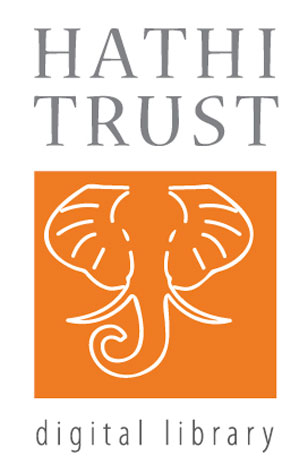 From a WIred Magazine article:
From a WIred Magazine article:
A federal judge on Wednesday threw out a copyright infringement lawsuit against universities that participated in a massive book-digitization project in conjunction with Google without permission from rights holders.
U.S. District Judge Harold Baer of New York dismissed an infringement lawsuit brought by the Authors Guild and other writers’ guilds, saying the universities had a fair use defense.
The plaintiff had named the University of California, University of Wisconsin, Indiana University, Cornell University and University of Michigan as defendants, being founding organizations of HathiTrust.
This ruling is a vindication of the work of HathiTrust to hold a copy of books digitized by Google and others on behalf of their member libraries.


Hi Roy,
I’m an online historical data researcher, just despairing of what’s recently happened at GoogleBooks. And no one else sees it?
I’ve left an online comment on another tech forum – please permit me to repeat it here. I think this “settlement” is a major story with lots of angles (devil-in-the-details), but maybe the number of data gleaners impacted is really quite small… so ‘no one really cares! I should hope this gets greater investigation and future discussion, for obvious reasons.
>>
‘Fair Use’ and access by the public to pre-1923 data has been grotesquely encumbered and severely curtailed by this settlement: Google caved to the evil publishers syndicate.
In fact, TONS of ‘fair use’ material just disappeared from the web. Why did this 1861 book go offline? And why did tens of thousands of other very old titles just disappear – POOF! – from the interwebs?
http://books.google.com/books?id=jpsAAAAAMAAJ
Beyond the issue of living authors and ‘current’ (post 1923 commercial) copyrighted works – the muddle of the media’s focus – these 19th and early 20th Century journal publications (some by sovereign entities like the State of California, others by long defunct professional associations) are now embargoed. And I’d insist that’s the REAL story here. THIS IS TERRIBLE!!!!
Think it through: we’re back to the pre-Internet days, when a researcher needed to physically visit a library collection. Or (if possible!) to request a volume from through Inter-Library Loan. And then – by primitive necessity and lack of any technological alternative – to pore through volumes of superfluous information – in hundreds of printed issues (in my case) – only to see IF there’s SOMETHING relevant somewhere within. Sheer idiocy? No – that’s how book research HAD to be done back in day, before the instaneous spider-grab access of GoogleBooks Search.
Now, thanks to this “compromise,” grueling and all-but-impossible time-consuming physical research is baaaaaack…. So are other researchers willing to march back into the mid-20th Century without a peep? I’m not. Over several years, I’ve built a blog out of historical price data culled from thousands of now “Error 404” GoogleBook sources. My research – building a price-record that exists nowhere else online, in any book or company file anywhere – would have been impossible to construct without sources found on GoogleBooks.
For a Search gleaner like myself, many of the best 19th and Early 20th C. sources just disappeared. Those very old books are now offline, records scrubbed from GoogleBooks: “Error 404.” Why? I’ll wager a guess. At some point in very recent history, McGraw-Hill and John Wiley & Sons ‘bought the rights’ or staked a claim… and GoogleBooks is now blocking what was visible to the world until ~two weeks ago. That’s probably in the fine print of the settlement, which is – in duplicitious and disingenous terms – now described as a “compromise” … “protecting Fair Use” … “good news.” Ha! Fat doublespeak chance.
WAKE UP, SLEEPERS. This is nothing less than a CORPORATE TAKEOVER of our history by data-mining oligarchs. “Copyright” will be a bludgeon against general research, if someone must pay John Wiley & Sons a licensing fee just to cite the 1859 price of dentures in a Pennsylvania dental journal (that Wiley NEVER published, btw.) In this is a very Orwellian scenario, if researchers cannot access/hyperlink these pre-1923 materials in digitized “public” libraries anymore, why assume it’s anything less than a monetary grab by Wiley and these other “not-publishers”? Why pretend this isn’t like “The Mickey Mouse Protection Act” – media monopolists moving the goal-posts for private gain, then duping the public otherwise?
Sorry for ranting, but I’m enraged by what’s just happened – and deeply alarmed that others fail to see what’s going on here. It’s enough to make me stand in front of Widener Library and shout-out-loud: “FREE THE DATA! FREE THE DATA!” (I’d be confirmed as a Cambridge wingnut then, hahaha.) I also lay the blame squarely on McGraw-Hill and John Wiley & Sons: in the publisher’s syndicate, those two evilbodies are the very worst culprits here, copyrighting American history for their shareholders’ greedy benefit. And nobody else here gets it? Really? Are there threads & threads about this nightmare-come-real already?
So: how can we ‘free the old books,’ now and going forward? Or is the privatization of American history a ‘done deal’?
<<
Regards, and thanks for your vigilance!